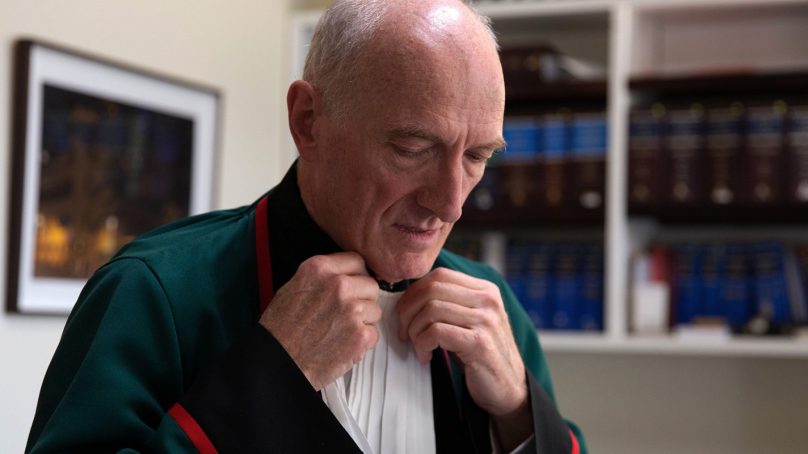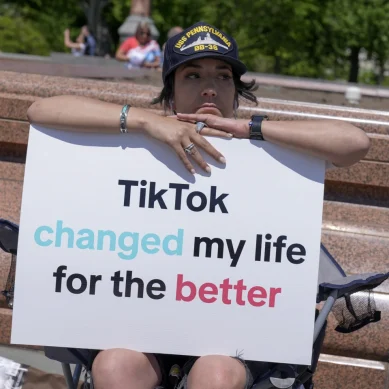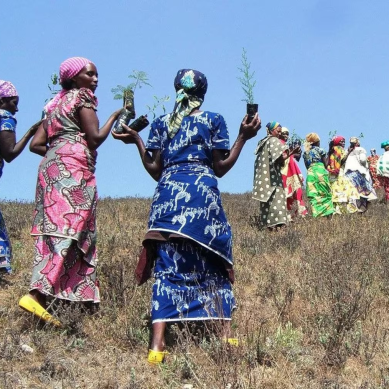
On December 1, we marked World AIDS Day. This year marks a sombre anniversary. On June 5, 2021, it was 40 years since disturbingly unexplained cases of illness and death – later called AIDS – were first officially tabulated. These four decades have yielded enormous medical and scientific progress, but too many deaths and far too much stigma remain very much with us.
Too many still elude testing, or die in silence and shame; treatment does not reach all who need it – and inequality and discrimination impede our global response.
Today, I am able to pen this because life unexpectedly afforded me survival from AIDS. Twenty-four years ago, I started on life-saving antiretroviral treatment, enabling me to bear witness to how discriminatory laws and policies damage those this fearsome epidemic imperils. Let me explain.
Around Easter 1985, in my early thirties and setting out on my career, I became infected with HIV. In those terrible years, no treatment existed: HIV meant certain death. Stigma and fear choked all who had or were suspected of having HIV or AIDS.
Like many others, I kept my HIV a secret. I hoped against hope that I would escape the spectre of death. No. Twelve years later, AIDS felled my body. With the certainty of death impending, I became terribly ill.
But my privileges gave me access to treatment and care. I had loving family and friends, and my job as a judge to return to. With early access to antiretroviral (ARV) treatment, I survived.
In 1999, I spoke publicly about living with HIV. I explained that ARVs had saved me from certain death, but that millions more in Africa were denied them.
Today, I remain one of the only people holding public office in Africa to speak publicly about being gay and about living with HIV. I say this not to claim credit, but because so much shame, fear, ignorance and discrimination still silence too many in too many places.
The response to AIDS is linked to democratic values and functioning legal systems. The rule of law, freedom of expression, freedom to protes, and other basic human rights matter.
Creating an enabling legal environment is a critical step. It means we employ the law to empower rather than oppress. It means scrapping pointlessly punitive criminal laws. It means achieving equality before the law.
Access to justice, the demand for law reform, awareness as well as education campaigns and vibrant civil society activism, embracing key populations, are pivotal. These foster beneficial change and help ensure accountability for human rights violations.
The past 40 years showed us this. Brave, principled, outspoken activists, from ACT UP in New York and the Treatment Action Campaign in South Africa, secured life-saving gains in treatment for AIDS. The activists’ struggle was for justice and for finding the most effective response to AIDS. In South Africa, the activists challenged President Thabo Mbeki’s denialist government in the highest court – which ordered him to start providing ARVs.
For them, as it was for me, and still is for too many today, the battle was about life versus death, wellness versus sickness, science versus harmful myths, discrimination versus justice and equality – and about how fair practices make sound public health sense and save lives.
The new Unaids strategy embraces this history. It seeks to ensure access to justice and accountability for people living with or affected by HIV and key populations. Rightly, it calls for increased collaboration among key stakeholders, for supporting legal literacy programmes, and for increased access to legal help. From the international community, it also provides for substantial commitment, greater investments and strategic diplomacy.
The Covid-19 pandemic has not alleviated these goals – its impact on inequality has made them more pressing. Anti-infection lockdowns led to HIV and AIDS service disruptions (healthcare facilities were closed or resources were reallocated to Covid-19 or there were shortages of ARVs).
On the other hand, lessons have been learnt, and mRNA technology could speed up the development of AIDS vaccines.
Though there is still no cure, AIDS is no longer a death sentence. Twenty-four years after taking my first ARVs, I am living a vibrant, joyful life. Our challenge lies within ourselves, and our societies: it is to overcome fear, discrimination and stigma to ensure life-saving treatments and messages are equally and equitably accessible.
Ending AIDS by 2030 is a realistic goal. But to achieve it, we must respect, protect and fulfil the basic rights of those living with and at risk of HIV. We must embrace democratic aspirations, place key populations at the centre of our response, provide resources to reduce inequalities as well as inequities, and foster legal environments that enable us to end AIDS.
These harsh past 40 years have shown us this: with enough support, science, focus and love, we can end AIDS. DM
- A Daily Maverick opinion / Judge Edwin Cameron, South Africa











